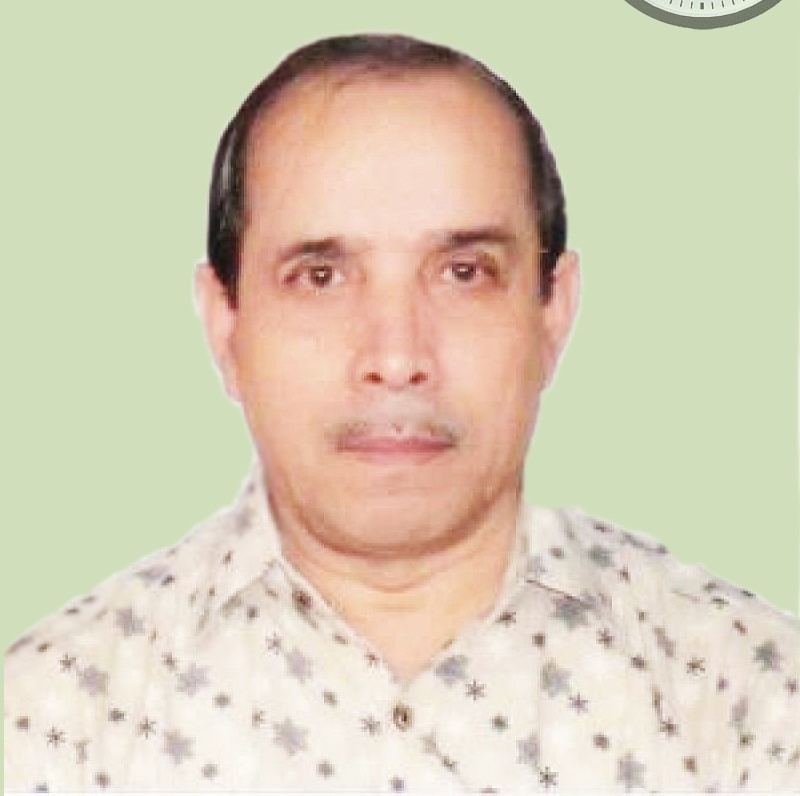- Bangladesh Heads to First Gen Z-Driven Competitive Poll |
- EC Lifts Mobile Phone Ban, Bars Photos Inside Booths |
- Youth participation vital to BD’s democratic future: C’wealth Group |
- Stocks retreat on week’s first trading day as turnover drops |
- Free education for girls up to honours if BNP wins: Zubaida Rahman |
Writ to undo 15th amendment shows smart way to restore Const

Mostafa Kamal Majumder
Mostafa Kamal Majumder
A writ petition filed in the High Court on Monday 19 August challenging the validity of the 15 Constitutional Amendment passed in 2011, and a rule issued based on it can be a smart way to restore the system of elections under a caretaker government in the Constitution.
Five prominent persons including Badiul Alam Majumdar, founder-secretary of a civil society organization named 'Sushasoner Jonya Nagorik' (SHUJAN) filed the writ challenging the validity of the Fifteenth Amendment of the Constitution. The other four are Tofail Ahmed, M Hafiz Uddin Khan, Zobairul Haque Bhuiyan and Zahra Rahman.
The High Court bench of Justice Naima Haider and Justice Shashank Shekhar Sarkar issued the rule, after the preliminary hearing on the writ petition filed by the five eminent persons in public interest, as to why the 15th amendment should not be declared in conflict with the constitution.
Lawyer Sharif Bhuiyan who stood for the petitioners said according to Article 142, to change or amend several articles at once, a referendum must be held. Many articles of the constitution were changed through the fifteenth amendment. But no referendum was held. Passing the amendment without referendum is unconstitutional, he added.
He also said that the Appellate Division in its written summary order in the Thirteenth Amendment case said that the next two (10th and 11th) National Assembly elections should be held under a caretaker government. But in defiance of that order, the Thirteenth Amendment was repealed by the Fifteenth Amendment. As a result, the 10th and 11th National elections were held under a party government instead of a caretaker government. That is why the Fifteenth Amendment is in conflict with the order of the Appellate Division and against the basic structure of the Constitution.
The Fifteenth Amendment was passed in parliament on June 30, 2011 and assented to by the President on July 3, 2011. Along with abolishing the caretaker government system through that amendment, Bangabandhu Sheikh Mujibur Rahman was given constitutional recognition as the father of the nation.
The number of seats reserved for women in the Parliament was increased from 45 to 50; Secularism and religious freedom were re-enforced in the constitution. The principles of nationalism, socialism, democracy and secularism were added as state principles through this amendment.
Most important aspect of the amendment was the undoing of the unanimous character of the Constitution that was achieved through the 12th and the 13 Amendments of 1991 and 1996 after 20 years of troubled journey in independent Bangladesh following the introduction of a one-party system way back in 1975. The constitutional history of Bangladesh had a troubled past that had started with the abrogation of the unanimous 1956 Constitution by military ruler Ayub Khan in 1958.
The writ in question has shown the way the interim government can chart to restore the unanimous Constitution of 1996 by undoing the controversial amendments passed by the Awami League regime. The government can also deal with the Appellate Division's declaration of the 16 amendment as null and void by bringing out from deep fridge the suspension of operation of that verdict in a constitutional case filed by the eastwhile AL government against the same.
Political scientists of the country at a roundtable of the Jatiya Rashtracinta Parishad held at the National Press Club the other day have suggested either the abrogation of the present Constitution or restoration its unanimous character by deleting the controversial amendments through the promulgation of Constitutional amendment ordinances. Such ordinances could be passed in the next elected Parliament. The writ shows the smart alternative path to do away with the amendments that an overwhelming majority of political parties oppose.
The Interim government can save time to deal with the problem to tuning the Constitution to the democratic aspirations of the people expressed through the August 5 student-people revolution that unseated the AL government. This will also guard against commission of mistakes, or encountering differences of opinion and difficulties of resolving those while attempting the drafting an entirely new Constitution.
The passage of the 12th amendment was possible because of 'philosopher king'-like guidance that was available from then Acting President Justice Sahabuddin Ahmed and then Chief Election Commissioner Justice Abdur Rouf, plus the BNP had a solid support from other parties to get an amendment passed. While adopting the 12th amendment they made suitable changes to the Constitution that existed at the time instead of drafting an entirely new one. The Awami League had submitted a comprehensive private member's constitutional amendment bill at that time. The AL bill consisted of restoration of the relevant articles of the 1972 Constitution, an analysis showed.
Even private amendments including one from the Workers Party for holding sessions of Parliament after every 60 days was incorporated in the 12th amendment. However, another private amendment bill on caretaker government submitted by Jamaat was rejected by all parties at the scrutiny stage. The 12th amendment represented an unanimous Constitution which was enlarged with the unanimous 13th amendment. To steer clear of the present constitutional crisis the interim government can rely on the Supreme Court to restore the substantive unanimous part of the document by doing away with the controversial provisions. The earlier the government seeks this the better, because an SC verdict would also do away with the controversy over the legality of the present government when the 13th amendment will be restored.

